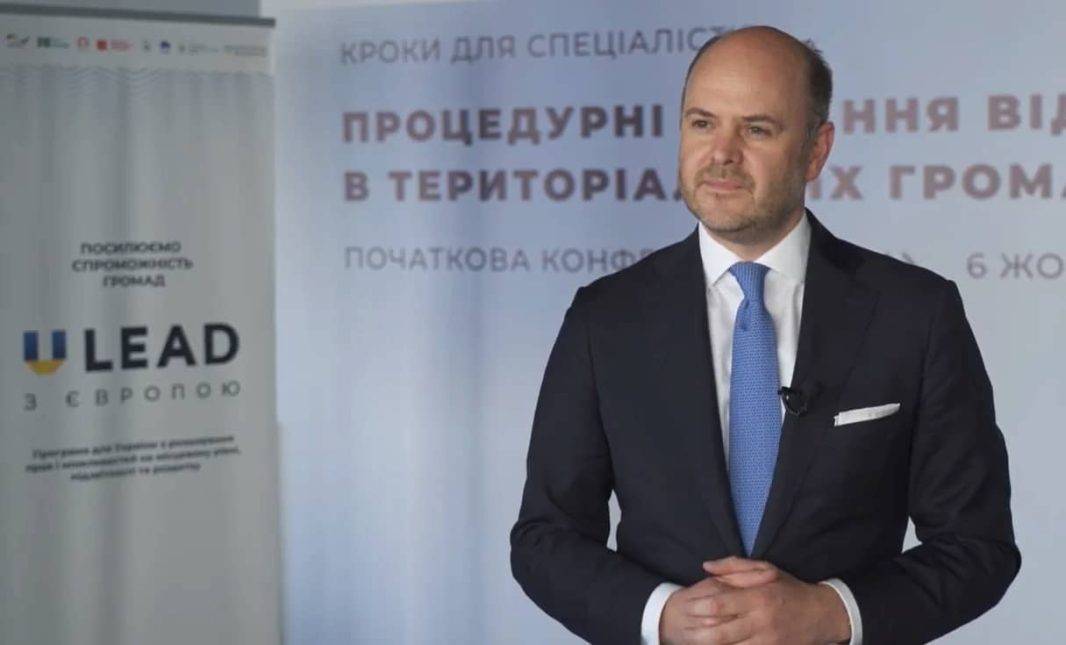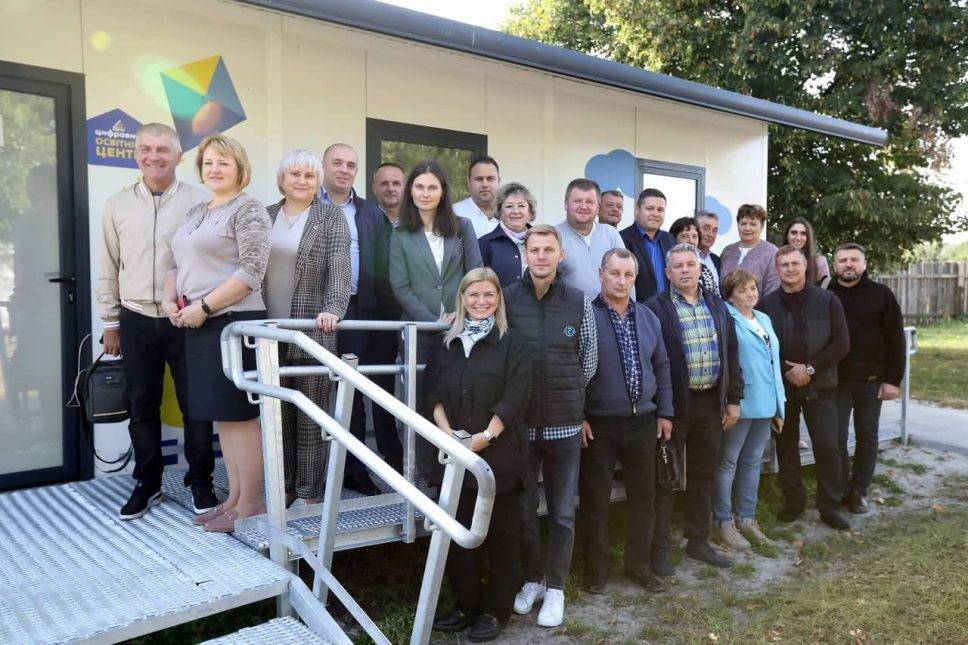
When reconstruction of Ukraine’s infrastructure should start and what European experts advise
Ukrainian municipalities affected by Russian aggression are starting to rebuild damaged buildings and municipal facilities almost immediately after the shelling and bombing stops. Not all foreigners observing us understand the realities of living in a war. Therefore, at times, opinions are voiced to wait until the end of the war and then start rebuilding.
Fortunately, most of Ukraine’s international partners support us in our desire to provide normal living conditions even in these difficult times. The new initiative of the U-Lead with Europe programme, which we recently have talked about, is a proof of that. The initiative is funded by the government of Germany, and is implemented jointly with the Ministry for Communities, Territories and Infrastructure Development of Ukraine. It provides Ukrainian communities most affected by destruction with construction materials, equipment, and municipal transport, ensuring a possibility of small-scale local reconstruction.
Georg-Sebastian Holzer, Coordinator of the “Strengthening Local Resilience. Support For Emergency Repairs in Municipalities” Initiative, explains that the great reconstruction of Ukraine will be impossible without these steps.

Support For Emergency Repairs in Municipalities” Initiative
“The European Union and EU member states that have joined this initiative share our conviction that the reconstruction, repairs, and improving resilience of municipalities should start immediately. At the same time, we should be planning the great reconstruction at the national level. There is no conflict for me in this. Conversely, these two directions should be combined: practical and immediate assistance for communities now, and planning the great and time-consuming rebuilding in the future,” he stressed.
It was fundamentally important for the organizers of the initiative to work with municipalities. After all, local people have a better understanding of their own needs. Accordingly, they are more effective in identifying priorities: which facilities should be repaired first, what equipment or transport to order from European partners, etc.
“We want the municipalities to not only decide this on their own, but also take responsibility for these decisions,” says Holzer.
This principled position is also related to the fact that since 2016, the U-LEAD with Europe Programme has been primarily focused on strengthening the resilience of municipalities in Ukraine. The programme involves a series of projects and activities to support the decentralization reform, and is funded by the European Union and its member states Germany, Sweden, Poland, Denmark, Estonia, and Slovenia. Programme experts have already conducted thousands of events for territorial communities, sharing their deep experience with local officials on the most pressing issues of self-government, including during martial law.

05 жовтня 2023 р. для обміну досвідом відбудови
Now, U-LEAD with Europe is also not limited to material assistance. Municipalities are already receiving assistance in how to adapt to modern challenges through training, consultations, and other capacity-building measures.
“This is critically important. We do not simply provide funding for municipalities; we want to give them an opportunity to play a significant role in rebuilding Ukraine at their level. And for this, we teach them, for example, how to act correctly in a very difficult environment in accordance with current rules and regulations. This is a step that makes our initiative more sustainable and stable,” emphasizes Georg-Sebastian Holzer.
This autumn, during the presentation of the “Strengthening Local Resilience. Support For Emergency Repairs in Municipalities” Initiative, and the “Procedural Aspects of Recovery in Municipalities” training course, U-LEAD with Europe brought together in Kyiv the leaders of nearly 100 municipalities affected by the war, who visited communities in Kyiv and Chernihiv oblasts to exchange experience in recovery and reconstruction.
“We all share the belief that peace in Ukraine, security in Ukraine is about peace and security for the whole of Europe. So, the recovery in municipalities and the return of security to Ukraine begins the recovery of Europe,” stated the coordinator of the U-LEAD with Europe initiative.
Media, Publications
-
Respect and recognition
-
Eurobarometer shows strong support for Ukraine
-
New EU Strategy for the Black Sea Region
-
EU and UNDP in Ukraine transfer equipment to Lubny Medical College and Lubny City Primary Health Care Center
-
Happy birthday, invincible capital!
-
Justice matters most when people can feel it working